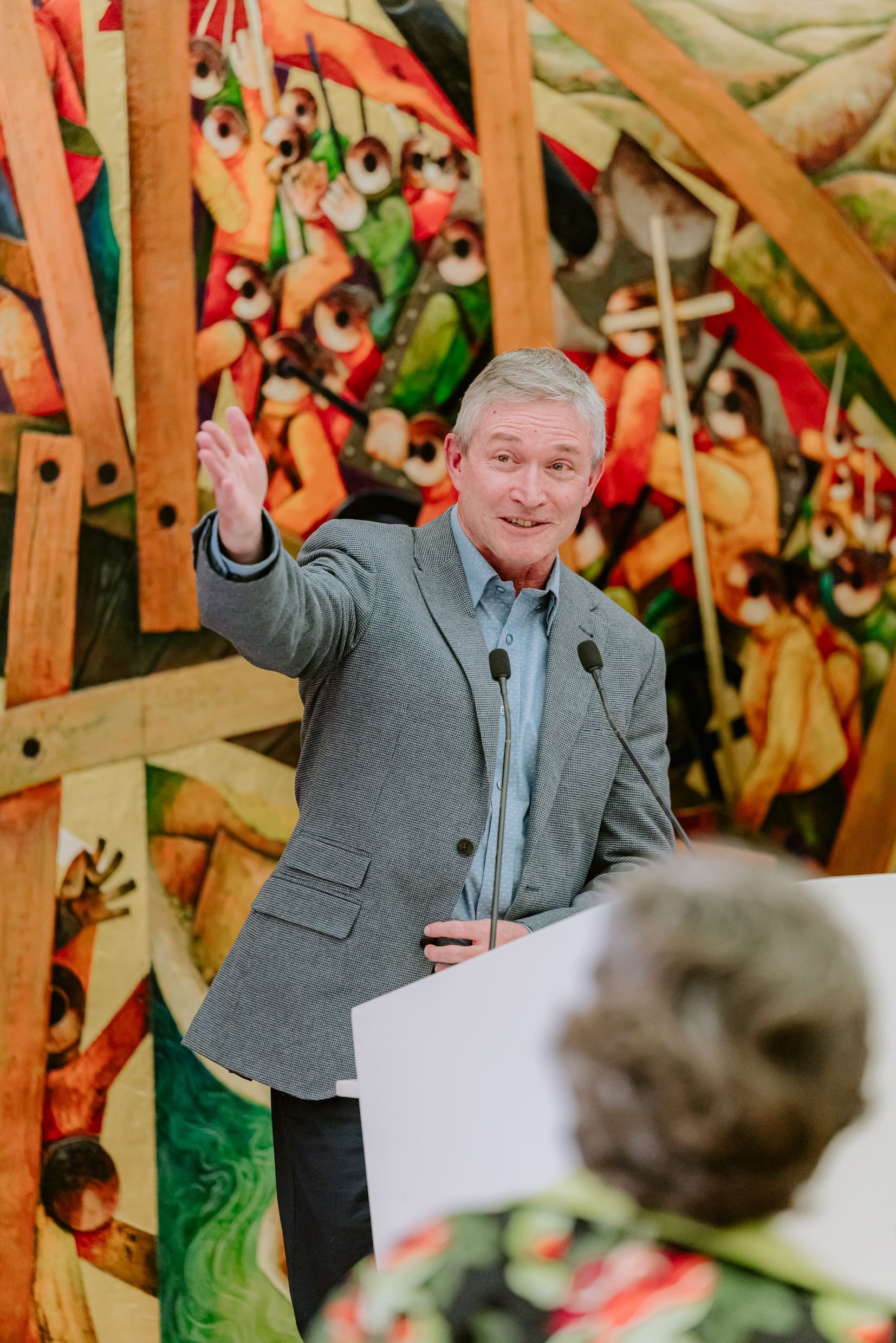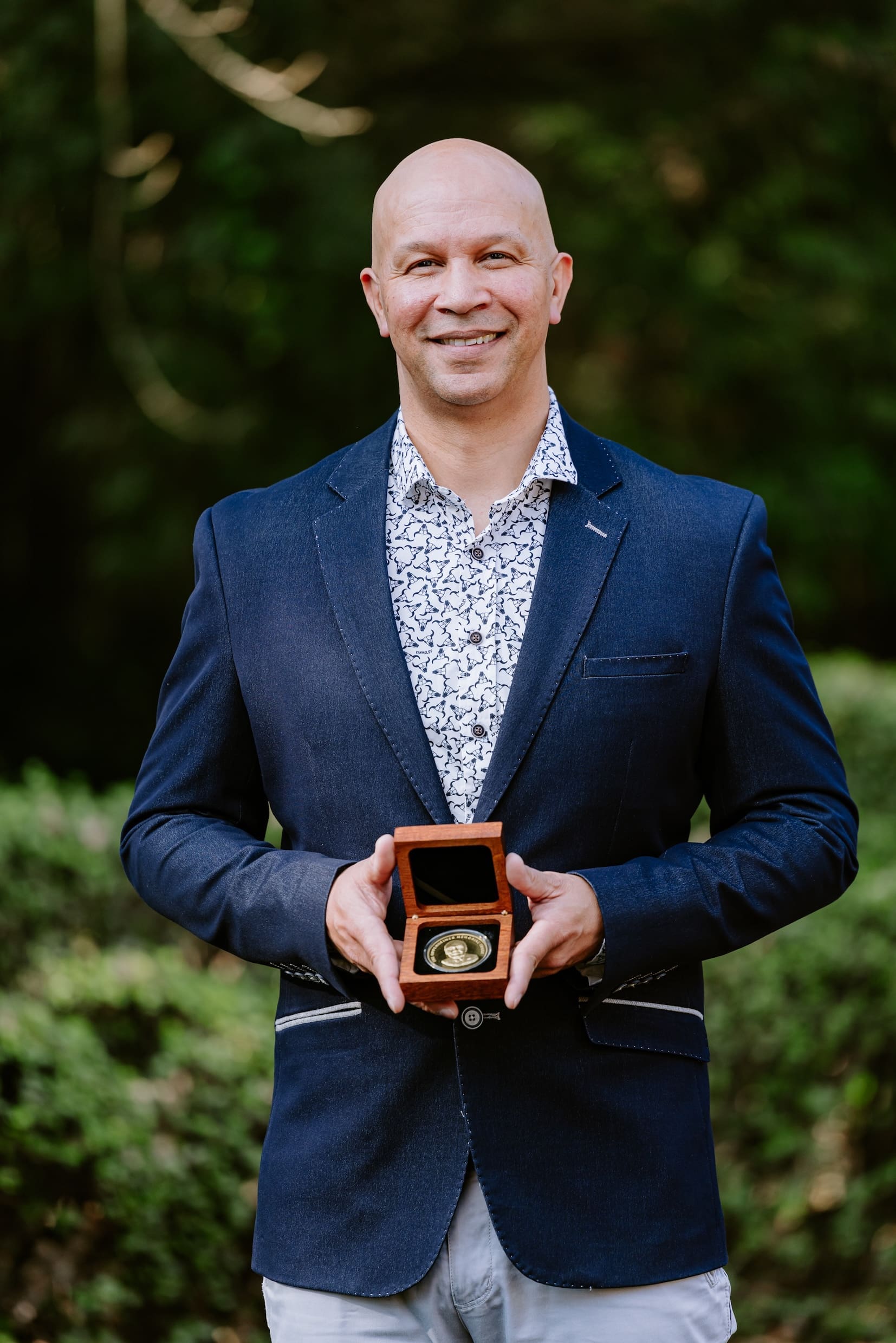[ad_1]
Two South African scientists are doing such internationally trailblazing research that the Oppenheimer Memorial Trust has granted each of them its most prestigious honours: the R2.5-million Harry Oppenheimer Fellowship Award.
“Each of our awardees made such a strong case that we found it impossible to choose between them – so we decided to double down in a time when our country needs it most. We’re very excited to be supporting their quests to make our world a better place for all who live in it,” says OMT chair Rebecca Oppenheimer.
The prize rewards high-calibre scholars who are “engaged in cutting-edge and internationally significant research that has particular application to the advancement of knowledge, teaching, research and development in South Africa and beyond”.
Research from University of the Witwatersrand (Wits) physicist Professor Andrew Forbes could unlock the viability of quantum computing, placing South Africa at the heart of computational progress worldwide and unleashing unquantifiable economic benefits.
Meanwhile, University of Cape Town (UCT) paediatric neurosurgeon Professor Anthony Figaji could make South Africa the fulcrum of live-saving advances in paediatric brain injury response.

“Prof. Forbes is approaching the question of quantum information from an entirely novel point of view carving out a niche for South Africa to participate in this burgeoning sector. Should he succeed, the world of computing will be revolutionised and the South African economy stands to be propelled forward through this emergent sector in South Africa. With Prof. Forbes playing an advisory role in developing SA’s quantum strategy, we are sure his discoveries and their applications will have market take-up,” says Oppenheimer.
“In turn, Prof. Figaji stands on the brink of transforming the way we manage traumatic brain injury in children, which is the leading cause of paediatric mortality in Africa. The infrastructure that he and his team have pioneered and the world-class data they have collected are the keys to saving many brain-injured children’s lives and providing them with a brighter future.”

If successful, Prof. Forbes, distinguished professor in the Wits School of Physics and head of its Structure Light Laboratory, will have unlocked the viability of quantum computing, which will be exponentially more powerful than current technology. This will mean that humanity is able to harness AI in a revolutionary manner, quickly leading to solutions to very hard problems in fields such as chemistry, pharmacology, logistics, finance and many more. In addition, this will be accomplished without the unsustainably huge energy price, environmentally speaking, that we currently pay for AI.
Prof. Forbes will lead a vibrant, young team of South African researchers and select international partners, including leading scientists from China’s Huzhou University, France’s Sorbonne University and Australia’s Monash University, to practically demonstrate an entirely novel way of managing quantum information.
Prof. Forbes believes that cracking this question will propel South Africa, which has no Silicon Valley of its own, to pole position in quantum software. “We would develop a quantum-literate workforce that realises our country’s immense human potential, sparking human and economic opportunities that we cannot yet imagine,” he says.
Prof. Figaji, head of Paediatric Neurosurgery at UCT and the Red Cross War Memorial Children’s Hospital, believes that if his research yields positive results it could draw researchers from all over the world to South Africa, which would be the epicentre of the study of paediatric traumatic brain injury.
He will lead a research project that will analyse a vast trove of data and a bio-bank of samples collected at the Red Cross War Memorial Children’s Hospital over more than a decade, and build academic capacity at the University of KwaZulu-Natal.
Three separate analyses will be done to bolster the treatment of secondary brain injury: the cascade of complex physiological events that occur as a result of an initial brain injury, such as swelling and lack of oxygenation, which can influence each other and create a vicious cycle that doubles and even trebles mortality.
Properly understanding how to identify and treat these secondary events is the key to substantially improving patient outcomes, by as much as 50%; not only that, it can help in the development of guidelines for institutions that don’t have sophisticated resources to easily identify and effectively respond to secondary brain injury.
Children are key to improving African social conditions, especially through healthcare and notably because the median age in Africa is 19, says Prof. Figaji. “If we have any commitment to not only a vulnerable population but to our future as a continent, then we really have to be prioritising children … It’s imperative to understand that, especially in an African context, we don’t often have the luxury of doing science just for the sake of science, we are constantly confronted with societal needs around every corner and we believe very strongly that the purpose of science is to change society.”
OMT’s dual Harry Oppenheimer Fellowship Award underscores the transformative potential of Prof. Forbes’s and Prof. Figaji’s pioneering research.
By investing in these leading South African scientists, OMT is not only advancing critical knowledge in quantum physics and paediatric neurosurgery but also actively fostering a future where South Africa plays a pivotal role in global innovation, driving economic growth, creating new job opportunities and significantly improving health outcomes both locally and internationally. Their work exemplifies the profound impact that dedicated, cutting-edge research can have on society, truly embodying the spirit of making our world a better place.
[ad_2]